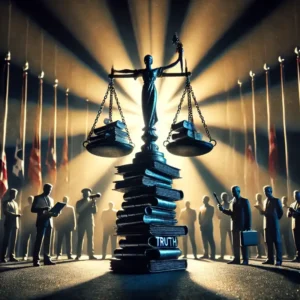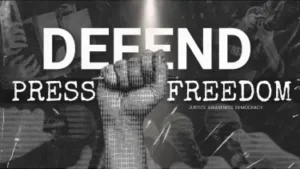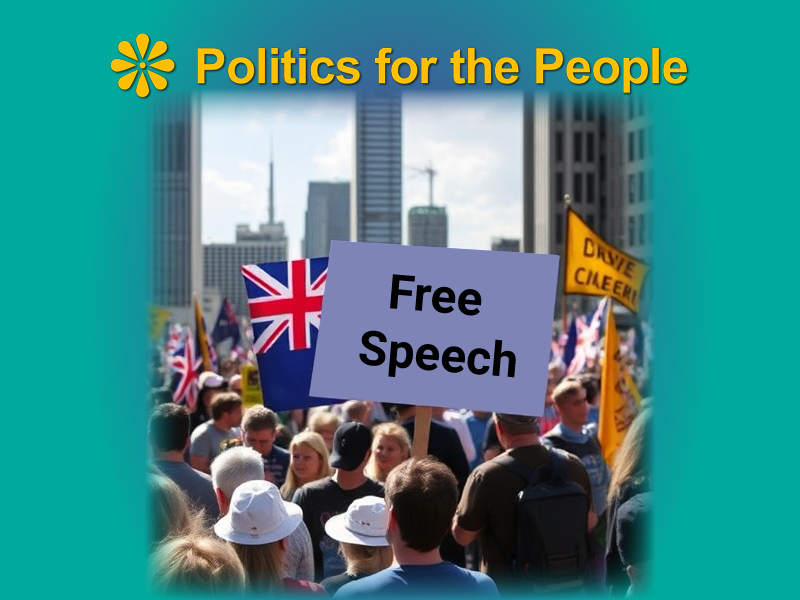Introduction: The Julain Assange Case
The ongoing legal saga of Julian Assange, the founder of WikiLeaks, is still a pivotal issue in the diplomatic relations between Australia and the United States. As Assange faces the threat of extradition and a series of charges related to his publication of sensitive documents, the Australian government finds itself at a crossroads. This situation demands a reassessment of its diplomatic stance and its commitment to the principles of justice, press freedom, and international reciprocity.
Justice Denied in Julian Assange Case
The Prolonged Legal Battle
Julian’s legal struggles stem from his pivotal role in releasing classified documents through WikiLeaks, exposing controversial government operations worldwide. These leaks revealed information ranging from military misconduct in Iraq and Afghanistan to diplomatic cables highlighting covert activities and geopolitical strategies. While some view these disclosures as a public service fostering greater transparency and accountability, others see them as a threat to national security and diplomatic relationships.
The ongoing legal saga has seen Assange endure over a decade of confinement, including years spent in Ecuador’s London embassy and later imprisonment in Belmarsh Prison. Currently, he faces extradition to the United States, where he could be prosecuted under the Espionage Act, potentially leading to decades or even life in prison.
This extradition effort raises serious concerns about press freedom, as it could set a precedent for criminalizing the publication of government secrets, even when such disclosures serve the public interest. Critics argue that his case highlights a troubling imbalance between national security concerns and the fundamental right to freedom of the press, with implications that extend far beyond Assange himself.
Assange’s deteriorating health has added urgency to his plight, with human rights advocates, medical professionals, and global organizations like Amnesty International calling for his release. These groups argue that prolonged detention and potential extradition amount to a violation of human rights and international law, particularly given allegations of political motivations behind his prosecution.
Whistleblower or Criminal?
 The debate over whether Julian Assange is a whistleblower, journalist, or criminal strikes at the heart of modern discussions on ethics, law, and public interest. As the founder of WikiLeaks, Assange enabled the publication of information that many argue the public had a right to know, exposing war crimes, corruption, and abuse of power. Supporters contend that his actions align with the principles of investigative journalism, serving as a watchdog to hold powerful governments accountable.
The debate over whether Julian Assange is a whistleblower, journalist, or criminal strikes at the heart of modern discussions on ethics, law, and public interest. As the founder of WikiLeaks, Assange enabled the publication of information that many argue the public had a right to know, exposing war crimes, corruption, and abuse of power. Supporters contend that his actions align with the principles of investigative journalism, serving as a watchdog to hold powerful governments accountable.
Conversely, critics, particularly from governments and security agencies, label Assange as a criminal who endangered lives by leaking sensitive information without redaction. They assert that some of the disclosures compromised national security, endangered operatives in the field, and strained diplomatic relations. However, these claims are contested, with some experts arguing that the leaked materials primarily revealed misconduct rather than causing tangible harm.
Assange’s case has also sparked a global discourse on the evolving role of journalism in the digital age. The internet has made the dissemination of information vast, rapid, and often uncontrollable, challenging traditional definitions of whistleblowing, journalism, and criminality. Assange’s prosecution under the Espionage Act—a law originally designed to target spies rather than publishers—has fuelled fears that governments are looking to curtail press freedom by punishing those who expose inconvenient truths.
Notably, Assange has received numerous accolades from press freedom and human rights organizations, including awards recognizing his contributions to transparency and accountability. These honours underscore the ethical complexities of his actions, illustrating the tension between state secrecy and public interest. His case highlights the growing risks faced by whistleblowers and journalists in a world where the lines between protecting sensitive information and exposing misconduct are increasingly blurred.
Global Implications
The outcome of Julian Assange’s case carries significant implications for press freedom, whistleblower protections, and the future of investigative journalism. A conviction could embolden governments worldwide to pursue punitive actions against journalists, publishers, or activists who challenge official narratives or expose wrongdoing. Such a precedent could deter whistleblowers and journalists from revealing information that serves the public good, effectively eroding democratic accountability.
At its core, Assange’s case stands for a clash of principles: the right of the public to access information about government actions versus the state’s authority to protect its secrets. As the global community watches closely, his fate will shape how societies balance these competing interests for years to come. Advocates for Assange argue that protecting his rights is not just about defending an individual but about upholding the freedom of expression and the fundamental role of a free press in safeguarding democracy.
The Imbalance in Australia-US Friendship
A Call for Reciprocal Respect
While Australia has long been an ally of the United States, taking part in numerous joint military and intelligence endeavours, the Assange case tests the limits of this alliance. Australia’s reticence in confronting the US more assertively on behalf of an Australian citizen highlights a dynamic where the benefits of the friendship are perceived as lopsided. This scenario has spurred calls for a more balanced relationship that truly reflects shared values and mutual respect.
Upholding National Values
The Assange saga presents a critical opportunity for Australia to reaffirm its commitment to fundamental democratic values, such as the rule of law and the protection of human rights. By advocating for Julian, Australia not only supports its citizen but also signals its dedication to these principles on the world stage, potentially reshaping its international identity and influence.
Defending Freedom of the Press
The Role of a Free Press in Democracy

The prosecution of Assange is pivotal for press freedom globally. It poses the question of how democracies decide the boundaries of press freedom, especially concerning national security. The case sets a precedent that could either affirm the media’s role as a watchdog capable of challenging governmental decisions or deter journalistic inquiry into sensitive but public-interest areas.
International Implications
Australia’s defence of Assange could galvanize global norms about freedom of information and the operation of a free press. It is a chance for Australia to lead internationally, advocating for legal and ethical standards that protect journalists and whistleblowers everywhere. This stance is particularly vital in an era where press freedoms are under threat in many parts of the world.
Protecting National Interests
Strategic Independence
By standing firm on the Assange issue, Australia can highlight its sovereignty and independence in foreign policy decisions. This approach would enhance Australia’s reputation as a nation that does not compromise on the welfare of its citizens or its core democratic values, even when faced with pressure from a powerful ally like the United States.
Enhancing Global Standing
A principled stand on the Assange case could redefine Australia’s global image, promoting it as a staunch defender of human rights and democratic integrity. This could lead to stronger, more fair international partnerships and a more pronounced role in global diplomatic circles.
Conclusion: A Call for Principled Action
Assange’s situation transcends individual legal battles; it is emblematic of broader themes of justice, press freedom, and international diplomacy. Australia’s stance in this case will not only decide Assange’s fate but also define the nation’s commitment to its values and its citizens.
Questions to Consider
1. What are the potential diplomatic repercussions for Australia if it takes a firmer stance on the Assange case?
2. How can Australian citizens influence their government’s approach to this issue?
Call to Action
Encourage ongoing dialogue and support movements that advocate for fair treatment and press freedom. Participate in public forums and discussions and reach out to representatives to express your views on the importance of protecting Australian citizens and preserving democratic values globally.
Reference:
US unmoved by Australia’s calls to let Julian Assange go free: https://thenewdaily.com.au/news/crime-news/2023/07/30/assange-blinken-prosecution/

